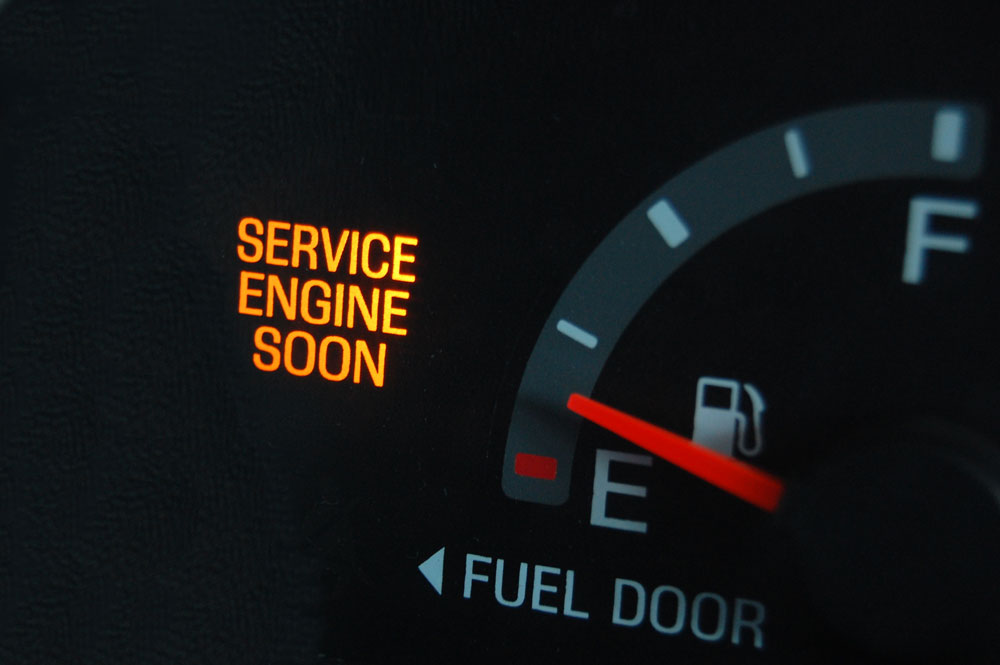Why is my Check Engine Light On?
I’m sure you’ve been a victim of the daunting Check Engine Light– also known as the Service Engine Light. Its that antagonizing light that just glares at you from the dashboard. So what do you do now? Do you just stare it with avoidance? Do you cover it with electrical tape? As absurd as that sounds, this is how most people deal with the Check Engine Light. However, what you should be doing is asking why. There are several things that could be triggering this alert to your vehicle. We are giving you the top 5 most common reasons your check engine light may be on.
-
Oxygen (02) Sensors
Your Oxygen sensors measure the amount of unburned Oxygen from your vehicle’s exhaust system. These sensors monitor how much fuel is burned and sends that data to the car’s computer. Sensors can become contaminated with oil ash over time causing them to not function efficiently. With faulty sensors, you’ll notice a decrease in gas mileage and increased emissions, because your vehicle is burning more fuel than necessary.
-
Loose or Cracked Gas Cap
While the gas cap doesn’t seem to serve much purpose other than sealing your tank, it does have a more important task. Your gas cap helps maintain pressure in the fuel system and prevents fuel evaporation. If the cap is cracked or not on correctly, fuel vapors could be leaking from your car. As a result, your vehicle will have a reduction in gas mileage and increased emissions as well.
-
Catalytic Converter
The Catalytic Converter works to convert carbon monoxide to carbon dioxide. This helps to reduce the amount of harmful compounds being released into the environment. If your Catalytic Converter is failing, it could be from a lack of regular maintenance on one of the other listed items. This is not usually the most inexpensive to fix, but if you bring it to us for repair immediately, we can help keep your expenses from piling up.
-
Mass Airflow Sensor
You may have never considered this one, but is still a possible culprit. The Mass Airflow Sensor tells your vehicle’s computer how much fuel to release to make the car run efficiently. It is solely dependent on the amount of air coming through the engine. If this is the cause of that glowing Check Engine Light, you will notice your vehicle get worse gas mileage and it may even begin to stall.
-
Spark Plugs
Spark Plugs seal the combustion chamber and ignite the air/fuel mixture. If it isn’t working properly or needs replacement, you’ll notice the car having issues with acceleration. Most manufacturers recommend that Spark Plugs be changed every 25,000-30,000 miles in older vehicles, or 100,000 for newer vehicles. Some sources suggest this is an easy fix, but that depends on the year, make and model of your vehicle. We suggest bringing it in and letting us have a look just in case this isn’t the true source of the problem.
If you’re seeing the Check Engine Light on your dashboard, just call us at Courthouse Automotive and we’ll get you in and back on the road in no time.

